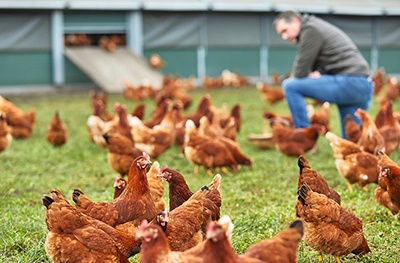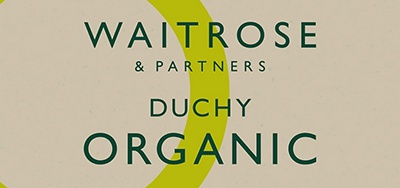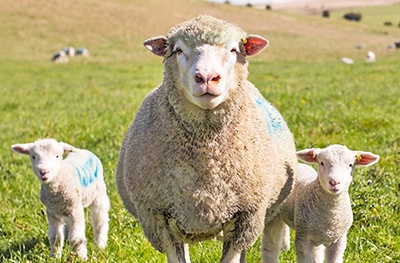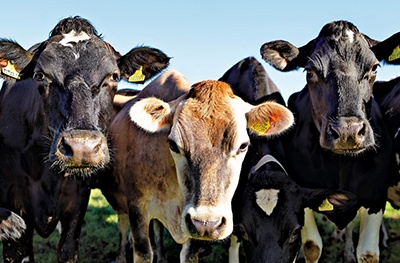Hens

ALL our eggs are FREE RANGE
Our egg-laying hens live outdoors during the day, pecking among trees that cover at least 5% of the paddock. They’re kept in houses at night, with access to perches and pecking spots.
Egg farmer Rebecca shows us how her egg-laying hens roam, perch and play
We haven't sold eggs laid by caged hens since 2001 and in 2008, we became the first UK supermarket to sell only free range.
It's this kind of long-term commitment that wins Waitrose awards for its farming. Look out for our animal welfare marque on our own-label eggs, dairy, meat and fish.



MEET the farmer
Duncan makes sure his organic free range British Blacktail hens can behave as they would in their natural habitat.
“We’re a family farming business that goes back more than 100 years, and my brothers and I are the fourth generation,” says Duncan. “I started with hens when I finished agricultural college – I’d looked at different systems, and whenever I saw organic hens, they seemed happy and contented.
“The birds have free access to the outside during the day – I wouldn’t want to spend all day in a shed, so my chickens shouldn’t have to either. They should have the chance to be chickens, and behave as they would in their natural habitat.
“Chickens are natural ground foragers, and they love scratching around for bugs and worms. If it’s rained overnight, they know, and in the morning they’ll run to find the worms that have come to the surface.

British Blacktail hens love scratching the ground for bugs and worms
‘We’re a family farming business that goes back more than 100 years, and my brothers and I are the fourth generation‘
“It’s our job to make sure that they get outside and get lots of stimulation. You have to think like a chicken – if it’s 500 metres from the middle of the range to the shed, that’s a long run for them, so if you want them to range, you make sure there are trees and other bits of shelter in between.
“We have little tin huts too, so if it rains, they can keep dry without going back inside. We only shut them in at night for protection from foxes.
“Organic chickens have more space than in other systems, and flock sizes are smaller, so you do get to know them.
“There’s always a character or two in every shed, one that’ll come up and say hello every morning. And if I’m outside, they’ll come and check out what I’m doing, and follow me around.
“I’m absolutely certain that happy hens lay better eggs. We have an honesty box at the end of the drive where we sell ‘seconds’ – our equivalent of wonky veg – and when people taste our eggs for the first time, they can’t believe how nice they are.”

Read MORE






